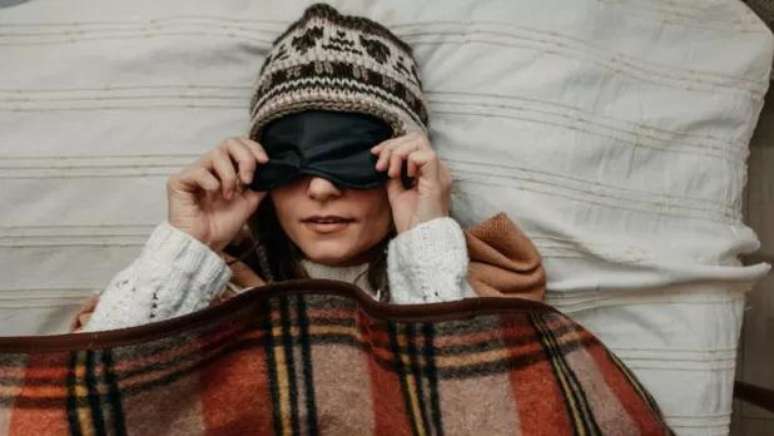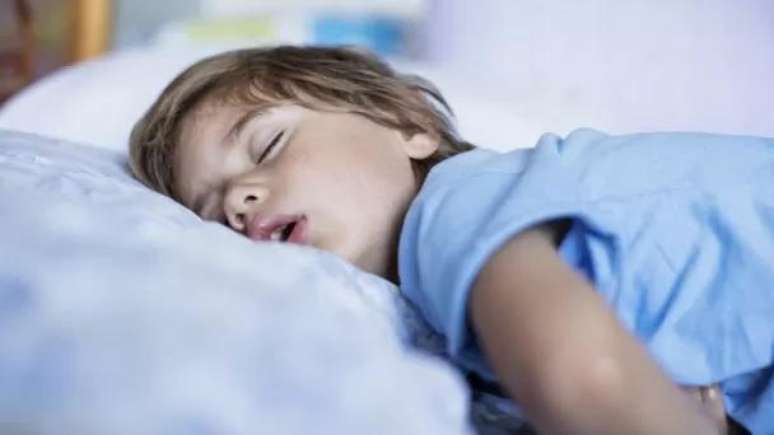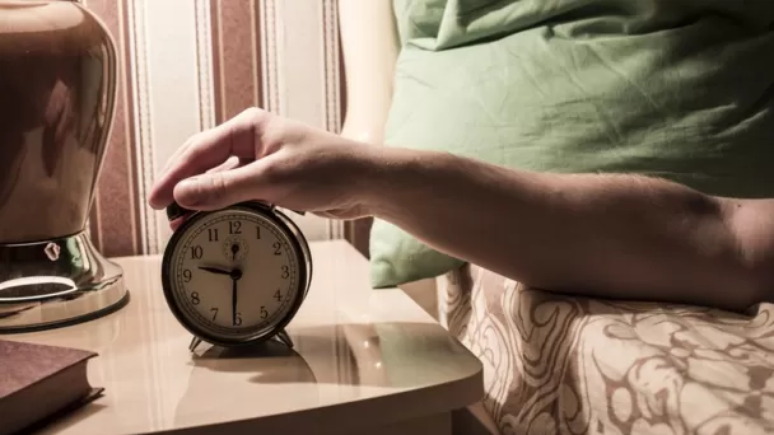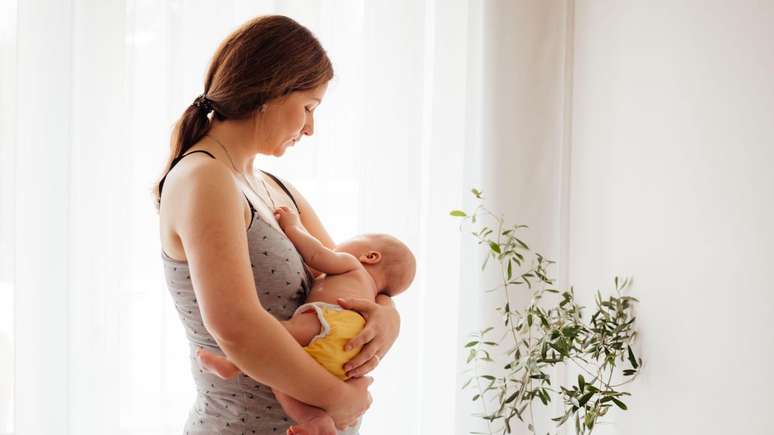Most of us know how difficult it is to muster the strength to get out of bed in the morning during the winter without hitting the “snooze” button on our alarm clock. And scientists say that’s no surprise.
html[data-range=”xlarge”] figure image img.img-20d26527b611a8e859858191c17e1ce0inc5echi { width: 774px; height: 435px; }HTML[data-range=”large”] figure image img.img-20d26527b611a8e859858191c17e1ce0inc5echi { width: 548px; height: 308px; }HTML[data-range=”small”] figure image img.img-20d26527b611a8e859858191c17e1ce0inc5echi, html[data-range=”medium”] figure image img.img-20d26527b611a8e859858191c17e1ce0inc5echi { width: 564px; height: 317px; }
While in Brazil we welcome autumn, the northern hemisphere welcomes spring, a welcome change after the long winter months.
There the days get longer and warmer and the first flowers appear. And in many countries, daylight saving time begins, moving clocks forward so that nights start earlier.
But on the way to summer there’s also a change that may be less pleasant: people are starting to sleep less.
Most of us know how difficult it is to muster the strength to get out of bed in the morning during the winter without hitting the “snooze” button on our alarm clock. And scientists say that’s no surprise.
Recent research indicates that humans may need more sleep during the dark winter months than during the summer. This need seems to hit people who live in cities, where artificial lights often disrupt the natural influence of daylight on our sleep patterns.
“Our study demonstrates that even living in urban environments with only artificial light, humans experience seasonal sleep,” says Dieter Kunz, one of the study’s lead authors and head of the sleep clinic and chronomedicine at St. Hedwig’s in Berlin , Germany.
“I would expect much greater seasonal variations if the patients lived outdoors and were only exposed to natural light,” adds Kunz.
Previous studies have concluded that exposure to artificial light before bedtime can suppress the secretion of melatonin, the hormone produced by the pineal gland that regulates the circadian clock, the natural sleep-wake cycle that repeats every 24 hours and makes us feel sleepy.
But the German study used detailed sleep recordings from 188 patients living in urban environments and altered sleep patterns. The conclusion was that, even when exposed predominantly to artificial lights, the participants experienced seasonal variations in REM sleep, which is directly related to circadian rhythm.
And, in fact, study participants slept an hour longer in December (when it’s winter in Germany) than they did in June, during the European summer.
REM (rapid eye movement) sleep is the most active stage of sleep, when we dream and our heart rate increases. It was 30 minutes longer in the winter than in the summer.
REM sleep is regulated by the circadian clock, “so the fact that it varies in parallel with seasonality makes sense,” says Kunz.
But Kunz’s team was surprised to find that there were seasonal changes in slow wave sleep (SWS), also known as deep sleep.
“We saw specific changes in REM sleep and deep sleep — the two main stages of sleep — throughout the year. This was completely new,” according to the researcher.
Slow-wave sleep occurs during the late stage of NREM (non-rapid eye movement) sleep. In it, the body promotes tissue repair and growth, builds muscles and strengthens the immune system. It is important for consolidating long-term memory and processing newly acquired information.
And the study participants’ slow-wave sleep was 30 minutes shorter in September (the German autumn) than it was in February.
The seasonality of deep sleep “was something we didn’t expect,” according to Kunz. “Deep sleep is not driven by the circadian clock system; it is a homeostatic process. [Isso significa que] the longer you stay awake, the more deep sleep you need to regain your energy.”
Kunz says more research is needed to understand why we need less sound sleep in the fall than in the winter. “We still have no idea what that means functionally.”
It should also be noted that the study was conducted in patients with sleep disorders such as insomnia, so it will need to be repeated in healthy populations to confirm whether these effects are seen more widely.
Sleep expert Neil Stanley of the UK’s Sleep Station clinic (which provides online cognitive behavioral therapy for insomnia) says it’s “surprising” that we don’t need deeper sleep during the winter.
“It’s thought to be slow-wave sleep [a fase do sono] more importantly, as it is related to memory, learning and optimizing the immune system,” he says. “The perception is that we would prioritize [o sono profundo] over anything else.”
“If you go an entire night without sleep, the next night you’ll make up all of your lost deep sleep and only half of your REM sleep,” says Stanley.
For him, the exact way our sleep changes with the seasons can be explained by our evolutionary past.
“We evolved to switch between light and dark, so when we wake up on a winter morning and it’s dark, our brain says ‘I can’t do anything… there’s no reason to jump out of bed.'”
But a good night’s sleep also depends on the temperature. Our body requires a skin temperature of 31-35°C, which we can control relatively easily in nowadays winter.
But in the summer, when higher temperatures are more common, this control can be more difficult, especially during heatwaves.

Changing habits?
If the results of the Kunz study prove to be correct, should we consider changing our sleep habits throughout the year?
Kunz says most people maintain a similar sleep pattern throughout the year. They go to bed between 10.30pm and 11pm and wake up around 7am to go to work.
Kunz and her colleagues noted that children are particularly driven to adopt a consistent bedtime. And because school and work schedules determine when we should wake up in the morning, researchers say it might be worth going to bed a little earlier during the winter to compensate for the ‘greater need for sleep’.
“Knowing that we need more sleep in the winter, there’s no point in sticking to the same schedules we create when we’re feeling better, during the summer,” explains Kunz.
If people have the same sleep patterns year-round, “our study shows they’ll lose one to two hours of sleep each night during the winter,” he said. “I doubt it will improve our health.”
Consequences
Lack of sleep increases your risk of developing type 2 diabetes, heart disease, obesity and depression, according to the US Centers for Disease Control and Prevention.
A recent Norwegian study indicates that patients who reported to their doctors that they slept less than six hours a night had a higher risk of infections than those who slept seven to eight hours a night.
Patients suffering from chronic sleep problems were more likely to need antibiotics. And people who slept more than nine hours a night also had a higher risk of infection, according to the study.
“A likely explanation for these findings could be that infections lead to sleep disturbances or increased sleepiness, or that sleep and the risk of infections are both associated with an underlying disease,” says researcher Ingeborg Forthun, lead author of the study. . of Bergen, Norway.
“Since infections are more common in the winter, it may be important to get more sleep. [nessa estação] to help prevent infections,” says Forthun.
However, if that doesn’t work, going to bed earlier can help us reduce our laziness when the alarm goes off on cold winter mornings.

How to improve sleep
Besides going to bed earlier in the winter, what else can we do to improve our sleep?
“Have as much natural light as possible in the morning so your circadian system at least knows the day has begun,” says Dieter Kunz. “It is important that, before going to school, children spend at least 10-15 minutes outdoors, [vendo] the sky.”
Neil Stanley says people can tolerate different levels of light at night, but advises avoiding bright lights two hours before bed and cell phone screens before bed.
Read the original version of this report (in English) on the BBC Future website.
Source: Terra
Ben Stock is a lifestyle journalist and author at Gossipify. He writes about topics such as health, wellness, travel, food and home decor. He provides practical advice and inspiration to improve well-being, keeps readers up to date with latest lifestyle news and trends, known for his engaging writing style, in-depth analysis and unique perspectives.








